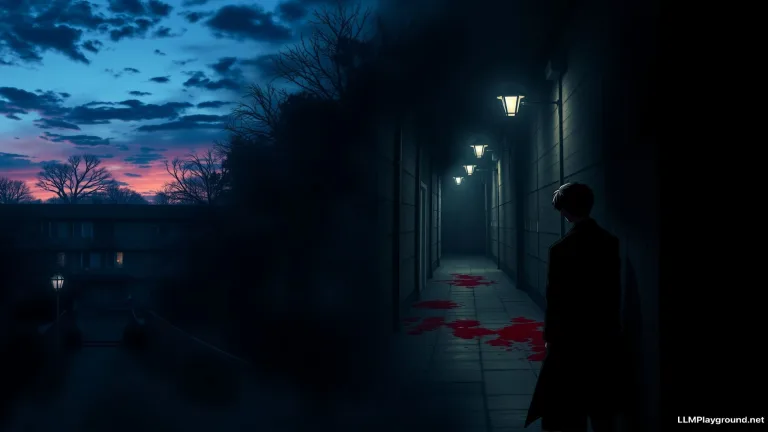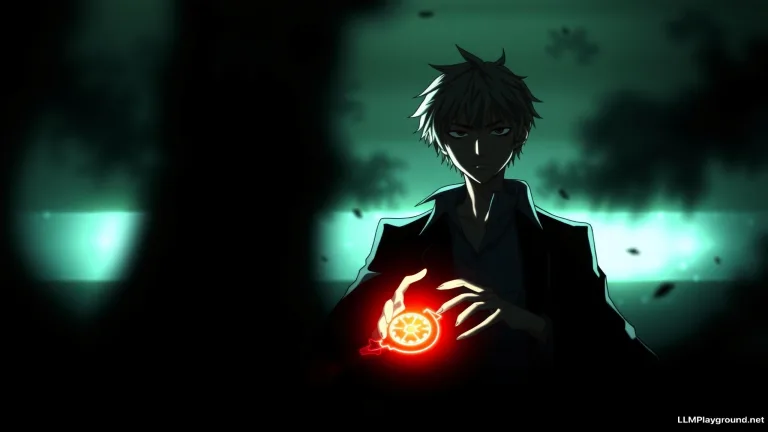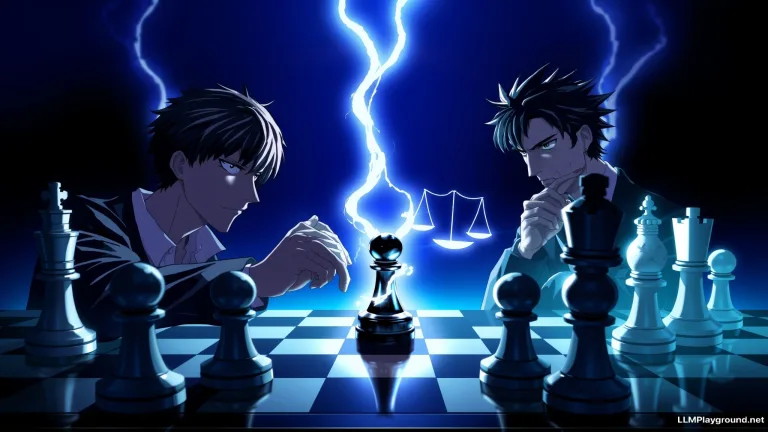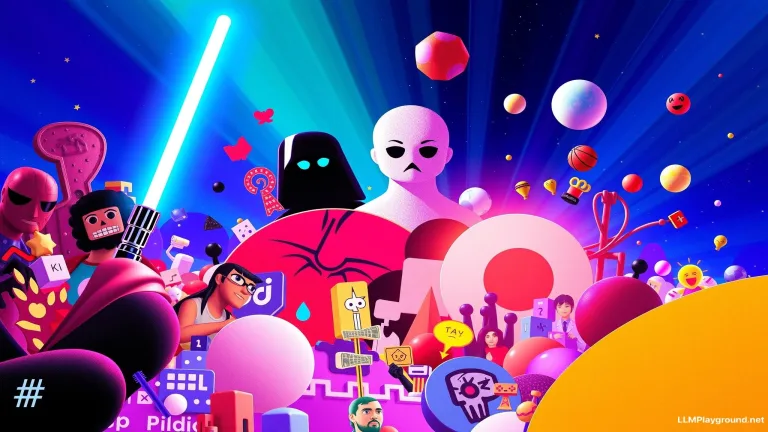
Introduction
In the realm of anime, few series have sparked as much debate and analysis as Death Note. At the center of this riveting narrative is Light Yagami, a brilliant yet morally ambiguous figure who assumes the vigilante persona of Kira. Fueled by a deep-seated belief in justice, Light utilizes a mysterious notebook that grants him the power to kill anyone whose name he writes in it. As he embarks on a quest to rid the world of crime, Light's actions set off a chain of events that challenge ethical boundaries and provoke profound philosophical questions. Many fans are captivated not only by his intellect but also by the layers of his character that unfold throughout the series. Kira’s legacy extends beyond the confines of this dark thrill ride; it questions what justice truly means in a society plagued by corruption. The influence of his choices reverberates through every episode, provoking debates about morality, power, and the name of justice itself. In this blog post, we will delve deeper into Light Yagami’s complex legacy, exploring how his pursuit of a 'better world' reveals the darker sides of ambition and the consequences of absolute power. Join us as we dissect the intricacies of Kira's character and the lasting impact he leaves on both the other characters and the audience alike.
The Rise of Kira: Unveiling Light Yagami's Ambitions

When Light Yagami first stumbles upon the Death Note, he is just an overachieving student disillusioned by the world's corruption. However, once he discovers the notebook's powers, everything changes. Light’s ambition to eradicate crime and establish a new world order under the alias 'Kira' drives him into a complex moral quandary. His vision for a crime-free utopia reveals not only his intelligence but also an underlying ego that propels him toward a path of destruction. This transformation from a model student to a self-proclaimed god raises intriguing questions about morality and justice in society.
As Kira’s notoriety grows, so does Light's resolve, fueled by both admiration from his followers and the fear instigated in criminals. His cold, calculated methods reveal a man who believes he is above the law, raising a complex debate around vigilantism and moral justification. The philosophical implications of Light’s actions are profound, impacting both the plot of Death Note and its fans worldwide. Ultimately, the rise of Kira is not just about Light Yagami's ambition; it reflects a larger discourse on power, morality, and the psychological toll of absolute authority.
The Morality of Justice: Is Kira Right?
Light Yagami, known as Kira, presents a uniquely challenging perspective on justice. As a character, he emerges as a vigilante determined to eradicate crime by using the power of the Death Note, a notebook that allows him to kill anyone whose name he writes in it. This poses fundamental ethical questions about the nature of justice itself. Is it justifiable to take a life if it means creating a safer world? Kira’s actions ignite deep conversations about morality, the rule of law, and the effectiveness of traditional justice systems. For many, Kira embodies the idea that one can take justice into their own hands when the system fails. Yet, at what cost? His journey raises crucial dilemmas about the extremes one might go to for the greater good.
As audiences delve deeper into Kira's legacy, they may grapple with the complexities and contradictions woven into his quest for justice. On one hand, Light believes he's saving society; on the other, his actions lead to a growing body count and a descent into madness. This duality challenges viewers to reflect on their own beliefs about justice—whether it should be absolute, subjective, or somewhere in between. Light’s transformation from an idealistic student to a ruthless killer serves as a cautionary tale about the seductive nature of power and the moral implications of one's choices. Ultimately, the question remains: is Kira justified in his pursuit of justice, or does he become the very monster he sought to defeat?
Kira vs. L: The Ultimate Minds Game

The battle of wits between Kira, also known as Light Yagami, and L, the mysterious detective, redefines the concept of a psychological thriller. Their interactions are filled with tension, misdirection, and brilliant strategy that keeps viewers on the edge of their seats. Kira, armed with the Death Note, seeks to eradicate crime while L is determined to stop him, believing in the supremacy of justice. This ideological clash is not just about outsmarting each other, but also reflects deeper themes of morality, power, and the consequences of absolute authority.
As the series progresses, the cat-and-mouse game unfolds with Kira and L leveraging their unique talents. Kira’s ability to manipulate life and death contrasts starkly with L’s logical reasoning and deductive skills. This dynamic is a fascinating exploration of how two immensely intelligent individuals navigate their moral compasses and challenge each other's beliefs. The layers of deception and strategy employed by both characters demonstrate how intellect can equally construct and destruct, making their rivalry one of the most iconic in anime history. Fans continue to engage in debates about who truly embodies the essence of justice, making Kira vs. L a timeless discussion in the realm of anime fandom.
The Legacy of Fear: Kira's Impact on Society
Kira, the alter ego of Light Yagami in the iconic series 'Death Note', left an indelible mark on the psyche of society within the narrative. Through his relentless campaign against crime, Kira instilled both dread and a sense of justice among the populace. Imagine a world where the fear of being targeted by Kira compelled criminals to reconsider their decisions, leading to an unexpected decline in crime rates. This paradox of a vigilante figure evoking both fear and admiration raises profound questions about morality, justice, and the limits of power.
Moreover, Kira's legacy transcends the boundaries of the anime realm, prompting real-world discussions about authority, legality, and the consequences of taking the law into one's own hands. Fans of the series often find themselves grappling with their own moral convictions—Is Kira a hero or a villain? The impact of Kira's actions nudges viewers to contemplate how fear can shape societal behavior and influence individuals’ willingness to act against injustice. As the story unfolds, we realize that Kira's profound influence not only affects those within the story but resonates deeply with audiences, challenging them to analyze their beliefs about justice—pushing them to weigh ideology against morality.
In essence, the legacy of Kira is not just about his acts of defiance against a corrupt system but also about the fear and hope intertwined in his quest for power. As we explore Kira's impact, it becomes clear that his story serves as a cautionary tale about the thin line between vigilante justice and tyranny, prompting ongoing discussions about how fear can both protect and control.
A Dual Identity: Light Yagami and Kira
At the heart of the critically acclaimed anime 'Death Note' lies the complex character of Light Yagami, who seamlessly transitions between the dutiful student and the ruthless vigilante, Kira. This duality not only shapes his character but also drives the gripping narrative that explores moral ambiguity, justice, and the power of the human mind. Light's initial desire to rid the world of criminals and create a utopia becomes increasingly overshadowed by his god complex as he assumes the role of Kira. This fascinating dichotomy plays a crucial role in establishing the philosophical questions the series poses about morality and the consequences of playing God.
Light Yagami’s transformation into Kira is fueled by a combination of intelligence and an unyielding will. As Kira, he wields the Death Note with an almost god-like confidence, but this power comes at a significant cost. The more he indulges in his role as a judge and executioner, the further he strays from his humanity. Audiences are captivated not only by Light's intellectual battles against those seeking to expose him but also by the moral decay that accompanies his descent into darkness. This compelling journey captivates viewers and invites deep reflection on their own perceptions of justice, power, and the implications of unchecked authority.
The Psychological Depth of Light Yagami
Light Yagami, the enigmatic protagonist of Death Note, showcases a profound psychological depth that elevates him from a mere antagonist to a complex figure in anime history. His transformation from a dedicated student with a strong sense of justice into the ruthless Kira illustrates the intricate interplay between power and morality. Throughout the series, Light wrestles with his dual identity, seeking to rid the world of criminals while simultaneously succumbing to the very darkness he aims to eliminate. This internal conflict not only captivates audiences but also prompts them to question the nature of justice and the ethical implications of absolute power.
As we delve into Light's psyche, we uncover a character driven by ambition, superiority, and a desire to mold the world according to his vision. His initial motives may resonate with ideals of a better society, but as the story progresses, we witness a chilling descent into narcissism and a god complex. This complexity makes Light Yagami one of the most compelling anti-heroes in anime. Fans and critics alike are left pondering the consequences of his actions and the broader question of whether the ends ever truly justify the means.
Kira’s Influence on Pop Culture

Light Yagami, known as Kira, has left an indelible mark on pop culture since the inception of Death Note. His character embodies the intricate battle between morality and justice, which resonates strongly with audiences across various mediums. This exploration of Kira's influence reveals how his multifaceted persona has inspired countless adaptations and discussions in anime, film, and even video games. From cosplay to fan art, the cult following surrounding Death Note attests to Kira's relevance and the ethical dilemmas he represents, igniting debates about vigilante justice and the consequences of absolute power.
Moreover, Kira's legacy extends beyond the confines of the Death Note series, inspiring characters in other narratives that grapple with similar themes. Iconic anti-heroes in contemporary storytelling often mirror Light's complex psychology, showcasing his profound impact on narrative structures. The concept of a morally ambiguous protagonist has gained traction in modern media, with Kira's character acting as a blueprint for writers seeking to explore the darker aspects of the human psyche. As societal conversations around justice and accountability evolve, Kira remains a symbol of the fine line between heroism and villainy, forever shaping how we view narratives centered on morality.
Kira's Controversial Methods: Vigilante or Villain?
Light Yagami, also known as Kira, is a complex character whose methods have sparked intense debate among fans of Death Note. To some, he is a vigilante seeking justice in a corrupt world, using the Death Note to eliminate criminals and create a utopia free from evil. However, others view him as a villain, driven by a god complex and a lust for power that ultimately leads to his downfalls. This dichotomy raises important questions about morality, justice, and the lengths one should go to achieve their ideals. Is it acceptable to take the law into your own hands, or does that make you no better than the criminals you seek to eliminate? The line between hero and villain becomes blurred, leaving viewers to grapple with their own beliefs about justice and morality.
Kira's manipulative tactics, including luring the world into a false sense of security and eliminating opponents without remorse, further complicate his legacy. While his intentions might appear noble, the catastrophic consequences of his actions—countless lives lost and a world thrown into chaos—paint a different picture. The impact of his decisions reverberates throughout the series, challenging the audience to reflect on the implications of absolute power. In this exploration of Kira's methods, we must confront the uncomfortable truth: can one truly enforce justice without becoming the very thing they despise? This moral ambiguity is at the core of Light's legacy, making him one of the most discussed figures in anime history.
The Final Confrontation: Kira's Downfall
In the gripping conclusion of Death Note, Kira, also known as Light Yagami, faces his ultimate downfall, culminating in a thrilling confrontation that fans still discuss today. Throughout the series, Light's calculated strategies and morally ambiguous decisions have drawn viewers in, but as the story progresses, his overconfidence becomes his Achilles' heel. This moment of revelation for Light is not just a simple defeat; it represents the culmination of his transformation from a righteous crusader to a figure consumed by the very power he sought to wield. The meticulous planning and psychological mind games between him and his adversaries, particularly Near, showcase just how far Light has strayed from his original intentions. It's a brilliant chess match that leaves fans on the edge of their seats.
Moreover, the themes of justice and morality that run throughout Death Note come together in this final showdown. Kira's image as a god-like figure begins to crumble as the series lays bare the consequences of his actions. The emotional tension reaches its peak when secrets are revealed, showcasing how Light's manipulative tactics have ensnared not just others, but himself as well. As viewers, we're left with a poignant message about the dangers of absolute power and the fine line between justice and vengeance. In the end, Light Yagami's legacy is not just about his downfall, but about the impact of his choices—serving as a cautionary tale for those who tread the dark path of righteousness.
Kira's Legacy: Analyzing the Aftermath
Kira's legacy paves the way for numerous discussions about morality, justice, and the value of human life. Light Yagami, the genius student turned vigilante, leaves behind a complex legacy that transcends mere entertainment. For many fans, he symbolizes the fine line between heroism and villainy, raising questions about the ethical implications of taking justice into one's own hands. As Kira, Light sought to cleanse the world of crime, but his methods ultimately led to chaos, fear, and numerous unintended consequences. This intricate moral landscape invites viewers to reflect on their own beliefs and the nature of justice in society today.
The aftermath of Light's actions continues to resonate within the world of 'Death Note.' His determination not only resulted in countless deaths but also sparked the creation of new enforcers of justice, such as Near and Mello. These characters represent the ongoing struggle between good and evil, showcasing how Kira's legacy was a catalyst for change. Moreover, fans of the series engage in debates about Light's motivations and the psychological toll of wielding such immense power—powers that ultimately consumed him. Kira stands as a reminder that even with the best intentions, absolute power can lead to devastating outcomes, compelling audiences to question their interpretations of right and wrong.
Conclusion
Light Yagami's legacy as Kira is one of intrigue, complexity, and moral ambiguity. His character embodies the struggle between the desire for justice and the slippery slope of tyranny. Throughout the series, we witness a transformation that leaves viewers questioning their own moral compass while grappling with the consequences of absolute power. The narrative of Death Note prompts deep reflections about ethics, responsibility, and the human condition. As we explore Kira's tumultuous journey, it becomes evident that his story is not just about a battle between good and evil but rather an exploration of what it means to wield power. For fans and newcomers alike, understanding Light’s impact on the world of Death Note is an essential key to appreciating its place in anime history. Light Yagami's legacy serves as a cautionary tale—a reminder that the paths we choose, no matter how noble our initial intentions may seem, can lead to unforeseeable and often tragic outcomes. In the end, Kira remains an enigmatic figure, forever etched in the minds of viewers as a symbol of the complexity of justice.
Frequently Asked Questions (FAQs)
Q: Who is Light Yagami?
A: Light Yagami is the protagonist of Death Note, a highly intelligent high school student who becomes the vigilante Kira after discovering a death-dealing notebook.
Q: What is the significance of Kira in Death Note?
A: Kira represents the struggle between justice and morality, showcasing how the pursuit of a 'perfect world' can lead to evil and corruption.
Q: What themes does Light Yagami's character explore?
A: Light's character examines themes like power, justice, morality, and the consequences of using absolute power.
Q: How does Kira affect the other characters?
A: Kira's actions deeply affect the characters around him, challenging their beliefs, pushing them to their limits, and creating a complex web of conflict and consequences.
Q: What is the overall message of Light Yagami's legacy?
A: The overarching message of Light Yagami's legacy is a cautionary tale about the dangers of absolute power, ambition, and the moral dilemmas surrounding justice.
